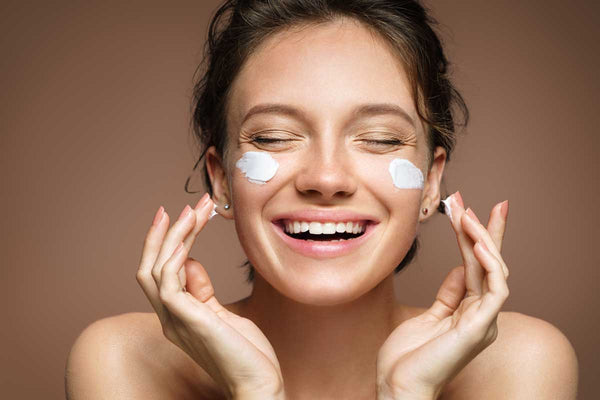Skin Care Advice

What Is Retinol and What Are its Benefits?
Within the skin care world, one of the most highly praised ingredients is retinol. Many highly popular serums and creams on the skin care market contain retinol and other retinoids. But what is retinol? And what’s the difference between a retinol and a retinoid?
- Retinoids are vitamers of vitamin A, meaning they are chemical compounds with a similar chemical makeup to vitamin A. These vitamers are themselves classified as vitamin A. I know it’s confusing, but bear with me here. Retinoids have the same effects as vitamin A, but at different levels and in different ways. Some are also easier for our skin to absorb and use than others.
- Retinol is one of several retinoids. It’s also naturally occurring in the skin and when it is applied to the skin, retinol is absorbed and converted into retinoic acid, which is known to help reduce the appearance of lines and discoloration. Retinol is also one of the safest forms of Vitamin A and is available without a prescription.
Now that you know what retinol is, here are some of the reasons it’s such an essential skin care ingredient:
It helps to fade hyperpigmentation and even out pigment
Retinol can help to shed dead skin and speed up cellular turnover, or the rate at which dead cells are replaced with new cells, helping to visibly improve pigmentation issues. It also helps signal damaged skin cells to act more like healthy ones.
It can help lessen the effects of future sun damage
Retinol can help prevent the rise of collagenase, an enzyme that breaks down collagen in your skin. This can help to mitigate the collagen breakdown effect of UV rays on your skin.
It reduces the appearance of wrinkles
Retinol helps damaged skin cells behave like healthy cells again, allowing your skin to retain more elastin and collagen, which can help it look tighter and less wrinkled. And as mentioned earlier, retinol can help to decrease the production of collagenase, which can break down collagen in your skin and cause it to look more wrinkled.
It can help fight acne
Retinol’s gentle exfoliation can help to unclog pores, which can reduce blemishes. Retinol’s collagen-boosting and pigmentation-balancing effects can also help diminish the visible effects of acne, such as redness and scarring.
Retinol’s small molecular structure enables it to penetrate deeper than other retinoids
Retinol is able to penetrate the skin better than other retinoids due to its small structure. This allows it to better deliver retinoic acid to cells, yielding better results.
Here are some things to be aware of if you’re new to retinol or retinoids:
The sun makes them less effective
Warnings have been issued in the past about retinol increasing skin’s sensitivity to sunlight. While this belief seems to have merely been a myth, it is true that retinol breaks down in the sunlight, reducing its effectiveness. Because of this breakdown, it’s best to use retinol at night.
They may cause mild flaking or irritation when you start
Some flaking and irritation is normal for most people who are new to using retinol, but your skin should adjust to it within a couple weeks. If serious irritation is occurring, consider using a lower-strength retinol product or discontinue use.
It can take 4–6 weeks to start seeing visible results
Unfortunately, results are not apparent overnight, but you should be able to start seeing visible results within 4–6 weeks. While that seems like a long time to use a retinol cream without seeing results, trust us: The results are worth the wait.
